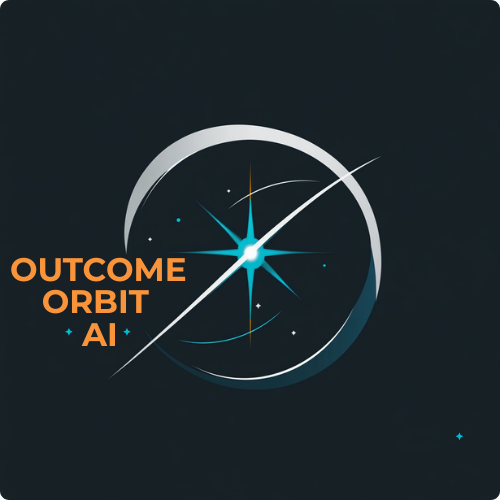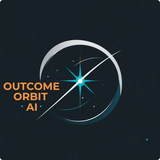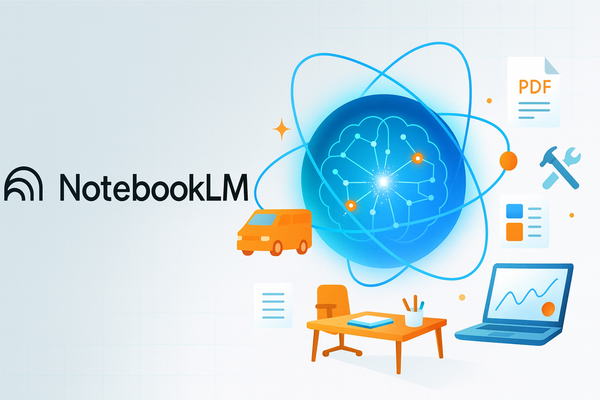Why Your Small Business Can't Afford to Fear AI: Lessons from a Serial Entrepreneur

Last week, I had the privilege of attending my 20th MBA reunion at the University of Texas. Among the highlights was a presentation by Brett Hurt, a serial entrepreneur who's built multiple companies from startup to billion-dollar valuations. You might know him as the founder of Bazaarvoice (which went public in one of 2012's top IPOs) or as the CEO of data.world, which was recently acquired by ServiceNow. But what struck me most wasn't his impressive track record – it was his refreshingly optimistic perspective on AI's role in small business.
Why Brett Hurt's Voice Matters
Brett isn't just another tech entrepreneur throwing around AI buzzwords. He's someone who's been in the trenches, building companies that serve real businesses with real problems. His experience founding Coremetrics (acquired by IBM for $300M) and scaling Bazaarvoice to nearly 2,000 clients worldwide gives him a unique perspective on how technology actually transforms business operations.
More importantly, Brett's companies have always focused on democratizing tools that were once only available to large enterprises. Bazaarvoice brought customer reviews to small retailers. Data.world made enterprise-level data management accessible to growing companies. Now, he's watching AI do the same thing – and he's excited about what it means for small businesses.
The Three Game-Changing Truths About AI for Small Businesses
1. AI as the Great Equalizer: Your Creativity Just Got Superpowers
"We're in this age of tech product abundance," Brett shared during his talk. What he meant is profound for small business owners: the tools that once required massive budgets and technical teams are now available to anyone willing to learn.
Think about this – just five years ago, creating professional marketing content, building training programs, or developing custom software required hiring specialists or expensive agencies. Now? A small manufacturing company can use AI to create safety training videos, generate technical documentation, and even design marketing campaigns that rival what Fortune 500 companies produce.
Consider how this could work in practice: A local accounting firm might spend $5,000 per quarter on a marketing agency to create content. With AI tools, that same firm could generate blog posts, social media content, and client newsletters internally – maintaining their unique voice and expertise while dramatically reducing costs. The quality doesn't just maintain its standard; it often improves because the business owner can focus on strategy instead of execution.
The bottom line: AI isn't replacing your creativity – it's amplifying it. Small businesses that embrace this reality will compete with companies ten times their size.
2. The Workforce Revolution Is Already Here (And It's Actually Good News)
Brett didn't sugarcoat the reality: "There's going to be massive creative disruption with deployments." But here's what most people miss – this disruption creates more opportunities than it destroys, especially for nimble small businesses.
The key is shifting from "AI will replace my employees" to "AI will help my employees become superhumans at their jobs." Instead of hiring three people to handle customer service, you might hire one person who uses AI tools to provide better service than those three could have provided.
Here's your practical playbook:
- Start with augmentation, not replacement: Identify your most time-consuming tasks and find AI tools that can handle the repetitive parts
- Reskill strategically: Train your existing team on AI tools rather than hiring new specialists
- Look for new revenue streams: AI often reveals business opportunities you couldn't see before
For example, imagine a manufacturing company implementing an AI system for inventory management. That same system might begin identifying patterns that predict equipment failures before they happen. Suddenly, they've not only improved their internal operations but discovered they could offer predictive maintenance services to other manufacturers – a revenue stream they never would have considered before AI provided these insights.
3. Move Beyond Fear-Based Competition to Collaboration
Perhaps Brett's most powerful insight was about transcending fear-based thinking. "Humanity has to transcend fear," he emphasized. "Science and spirituality are going to come together."
For small businesses, this translates to a fundamental shift in strategy. Stop asking "How do I compete with AI?" and start asking "How can AI help me collaborate better with my customers, suppliers, and partners?"
Fear-based thinking sounds like:
- "My competitor is using AI, so I need to rush into it"
- "I can't afford to be left behind"
- "AI is going to put me out of business"
Collaboration-based thinking sounds like:
- "How can AI help me understand my customers better?"
- "What insights can AI provide to help me serve my market more effectively?"
- "How can AI tools help me work more closely with my suppliers and partners?"
Brett's companies succeeded because they focused on collaboration – bringing businesses and customers together through technology, not using technology to beat competitors.
The Real Opportunity: Building Your Age of Abundance
Brett painted a vision of what he calls an "age of abundance" – a future where technology solves fundamental resource constraints. For small businesses, we're already living in the early stages of this reality.
Your small business can now access:
- Enterprise-level data analysis (without a data science team)
- Professional-quality content creation (without a creative agency)
- Advanced automation (without a development team)
- Customer insights (without a market research budget)
The question isn't whether you can afford to implement AI – it's whether you can afford not to.
Your Next Steps Start Today
Brett's message was clear: the exponential curve of technological change means that small, decisive actions today create massive advantages tomorrow.
Here's how to start your AI journey the right way:
- Identify one repetitive task that takes 5+ hours per week – this is your testing ground
- Choose one AI tool to solve that specific problem – don't try to transform everything at once
- Measure the results after 30 days – both time saved and quality improvement
- Use those insights to tackle the next challenge
Remember Brett's core philosophy: "Love conquers fear." Your AI journey should be driven by love for your customers, your employees, and your vision – not fear of being left behind.
The age of abundance is here. The only question is whether you'll be part of creating it or watching from the sidelines.
Want to learn more about implementing AI in your small business without the overwhelm? At Outcome Orbit AI, we help SMB owners transform technological complexity into actionable business results. Get started with our free 15 minute AI consultation.





